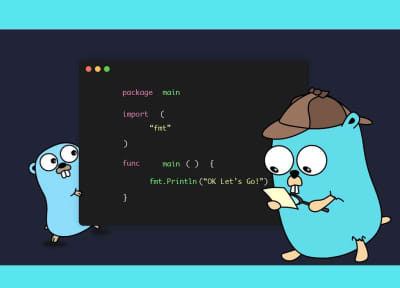Continuous Improvement and Code Reviews
- With Code Example
- August 18, 2023
Improve the Software Quality with Golang
Series - Golang Best Practices
- 1: Introduction to Golang Best Practices
- 2: Code Formatting and Style - A Guide for Developers
- 3: How To Handle Errors In Golang Effectively
- 4: Concurrency and Goroutines - Learn Parallelism in Golang
- 5: Memory Management in Golang - Safeguarding Efficiency and Stability
- 6: Testing, Benchmarking and Continuous Integration in Golang
- 7: Performance Optimization in Golang
- 8: Package and Module Design in Golang
- 9: Security Best Practices for Go Applications
- 10: Documentation and Comments in Go
- 11: Debugging Techniques in Golang
- 12: Continuous Improvement and Code Reviews
- 13: Understanding Error Handing in Golang
In the fast-paced world of software development, staying ahead of the curve is paramount. One of the cornerstones of achieving excellence in software engineering is the practice of continuous improvement, and a crucial tool in this journey is the process of code reviews. In this article, we’ll delve into the significance of continuous improvement and explore how code reviews, when applied to Golang projects, can lead to enhanced software quality, collaboration, and efficiency.

Continuous Improvement: A Foundation for Excellence
Continuous improvement is a philosophy that embraces incremental and iterative enhancements to processes, products, and services. In software development, this translates to a commitment to consistently enhance code quality, optimize workflows, and refine development practices. Golang, known for its simplicity, performance, and concurrency features, provides an ideal platform for implementing and benefiting from continuous improvement practices.
Code Reviews: The Quality Assurance Crucible
Code reviews are a pivotal component of the software development lifecycle, offering a systematic approach to ensuring code quality, identifying bugs, and sharing knowledge among team members. Let’s examine how code reviews can be seamlessly integrated into Golang projects:
1. Collaborative Insight with Golang Code Reviews:
Code reviews foster collaboration among team members by facilitating knowledge sharing and enabling developers to learn from one another. For instance, in a Golang project, a senior developer could provide insightful feedback on a junior developer’s code, suggesting optimizations or pointing out potential pitfalls.
2. Bugs and Defects Detection:
Golang code reviews provide an opportunity to identify and rectify bugs and defects before they impact the software. This is particularly vital in Golang, where the language’s strong typing and strict compile-time checks can help prevent subtle errors from slipping through the cracks.
3. Performance and Efficiency Enhancements:
Golang’s focus on performance makes it crucial to review code for potential bottlenecks or inefficiencies. A code review can unearth opportunities for utilizing Golang’s concurrency features to improve application responsiveness and scalability.
Golang Code Review Best Practices:
1. Clear and Constructive Feedback:
When conducting a Golang code review, provide feedback that is clear, specific, and constructive. Highlight areas for improvement, suggest alternative approaches, and commend well-implemented solutions.
2. Consistency in Style and Conventions:
Golang’s readability stems from its strict style and conventions. A code review ensures that the codebase adheres to these guidelines consistently, enhancing code maintainability and reducing cognitive load.
3. Automated Tools for Static Analysis:
Leverage Golang’s static analysis tools, such as go vet and golint, to automatically identify potential issues. Incorporate the results of these tools into your code review process to catch common errors.
Conclusion:
In the ever-evolving landscape of software development, continuous improvement and code reviews are indispensable practices that pave the way for high-quality, reliable, and maintainable software. By applying these principles to Golang projects, developers can harness the language’s strengths to build robust applications that meet the demands of today’s tech-savvy users. Remember, the journey towards excellence is ongoing, and each code review brings us one step closer to software nirvana.
So, whether you’re developing a sleek web application or a high-performance backend service, don’t underestimate the power of continuous improvement and the transformative impact of meticulous Golang code reviews. Elevate your coding prowess, embrace collaboration, and witness your Golang projects flourish in the realm of software innovation.





